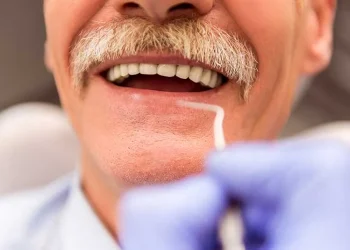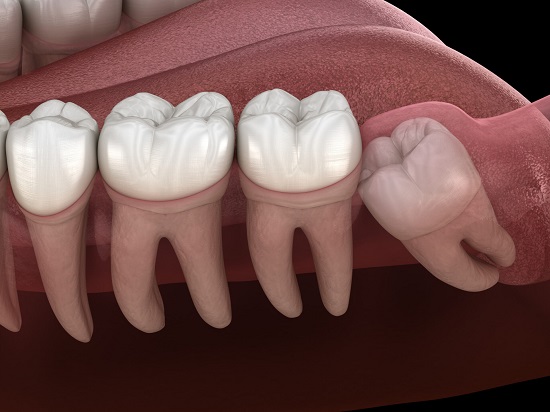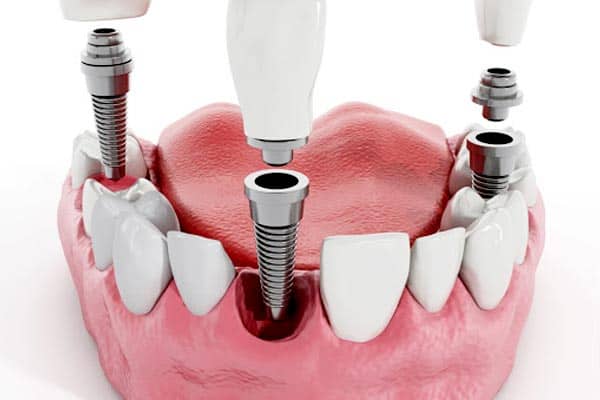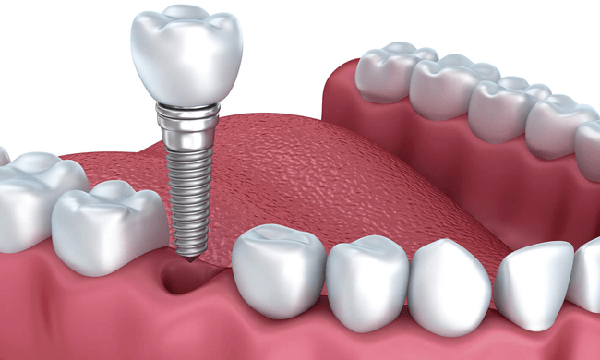Contents
Is it Possible to Have Porcelain Crown on Just One Tooth? The Cost of Porcelain Crown
Dental issues can make you feel self-conscious about your appearance. One of the solutions for such issues is porcelain crowns. Porcelain crowns are a type of dental restoration that covers the entire visible portion of the tooth. They are often used to repair or restore damaged teeth.
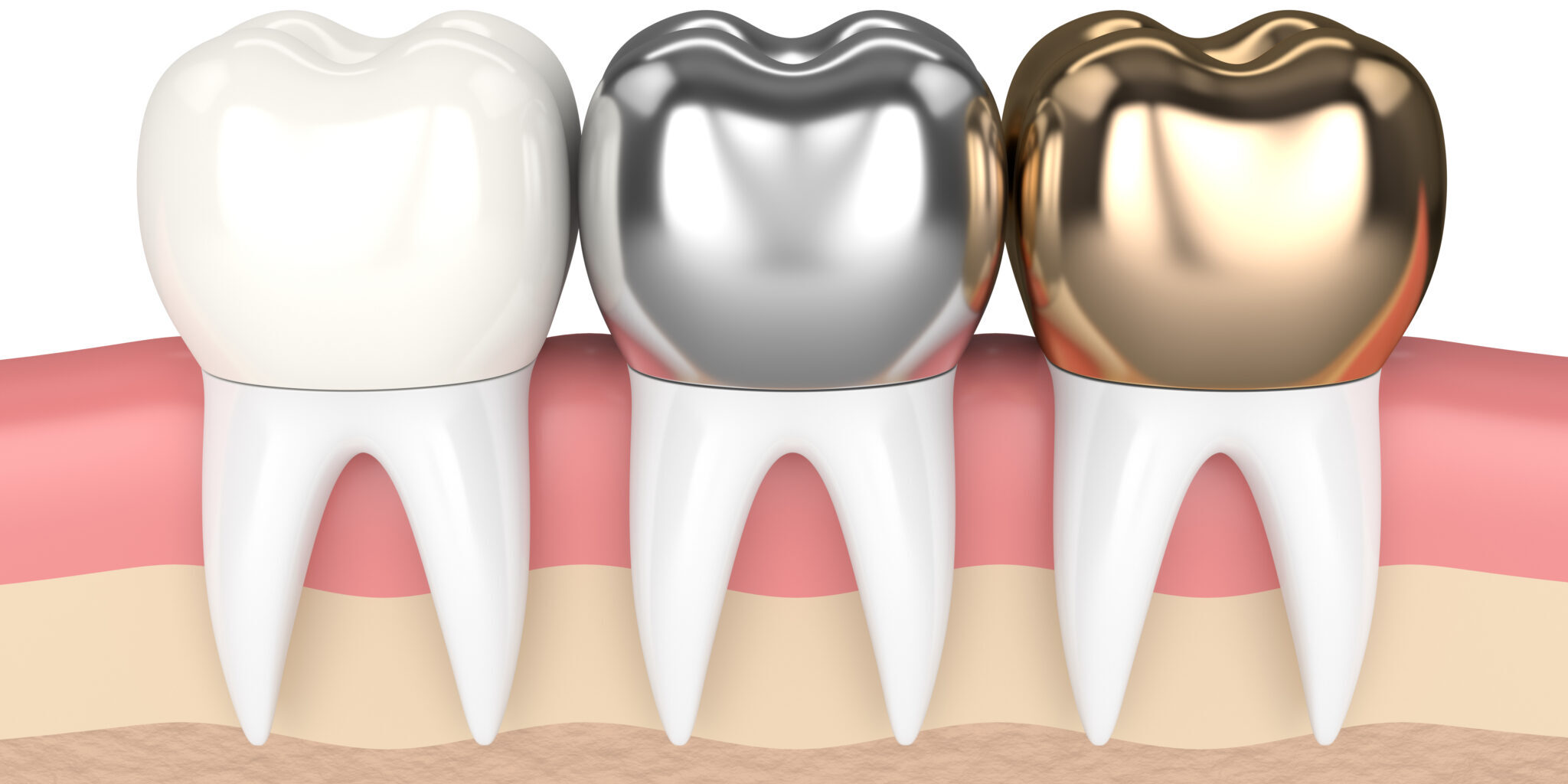
Porcelain Crown on One Tooth
The answer is yes! It is possible to have a porcelain crown on just one tooth. Porcelain crowns provide a stand-alone solution for restoring teeth without affecting adjacent teeth. As a result, customers can use them to cover individual teeth and overcome oral defects.
Porcelain crowns are used to restore teeth that are damaged or decayed. If you have only one tooth that needs restoration, then a porcelain crown can be used to restore that tooth. The crown will be custom-made to fit your tooth perfectly, and it will match the color of your other teeth, giving you a natural-looking smile.
Benefits of Porcelain Crowns
Porcelain crowns are a type of dental restoration that covers the entire visible portion of the tooth. They are often used to repair or restore damaged teeth. In this blog post, we will discuss the benefits of porcelain crowns.
Improved Appearance
One of the most significant benefits of porcelain crowns is that they can improve the appearance of your smile. Porcelain crowns are custom-made to match the color of your other teeth, giving you a natural-looking smile. They can also be used to cover discolored or stained teeth, giving you a brighter and more vibrant smile.
Protection from Further Damage
Another benefit of porcelain crowns is that they can not only improve the appearance of your teeth but also protect your teeth from further damage. Porcelain crowns are strong and durable, and they can withstand the forces of chewing and biting, which can help restore the normal function of your teeth. Furthermore, porcelain crowns can protect your teeth from decay and damage caused by bacteria and other harmful substances, which can lead to cavities and other dental problems.
Additionally, porcelain crowns can also help to prevent tooth sensitivity, which is a common problem among people with damaged teeth. This is because porcelain crowns can cover the exposed roots of your teeth, preventing hot and cold foods and drinks from triggering pain or discomfort. Overall, porcelain crowns are a great option for those looking to improve the health and appearance of their teeth.
Long-Lasting Results
Porcelain crowns are one of the most durable dental restorations available today. They are designed to withstand the daily wear and tear of everyday activities such as eating, speaking, and brushing.
Moreover, with the latest advancements in dental technology, porcelain crowns can now last for many years with proper care and maintenance. In fact, they can last for up to 15 years or more, making them a popular choice among patients who are looking for a long-lasting solution to their dental problems.
The Cost of Porcelain Crowns
What is the Cost of Porcelain Crowns?
The cost of porcelain crowns can vary widely depending on different factors. In general, porcelain crowns can cost anywhere from 1.000.000 – 9.000.000 VND per tooth.
Are Porcelain Crowns Worth the Cost?
Porcelain crowns are really strong, durable, and custom-made to fit your tooth perfectly, giving you a natural-looking smile. While the cost of porcelain crowns may seem high, they are an investment in your dental health and can last for many years with proper care and maintenance.
Factors that Affect the Cost of Porcelain Crowns
Location
The cost of porcelain crowns can vary depending on where you live. In general, prices are higher in larger cities and lower in rural areas. This price difference can be attributed to several factors, including the cost of living, demand for dental services, and competition among dental providers.
Material
When considering the cost of a crown, it is important to take into account the material used in its construction. Although porcelain is the most popular choice for its durability and aesthetic appeal, it is also the most expensive.
However, there are alternative materials that can be used to make crowns at a lower cost. One such material is zirconia, which is a type of ceramic that is both strong and aesthetically pleasing. Another option is metal, which is often used for its durability and strength. Lastly, resin is another material that is frequently used for its affordability.
By exploring these different options, one can find a crown that not only meets their needs but also fits their budget.
Complexity
The cost of dental work can be affected by several factors, one of which is the complexity of the procedure required. For example, if the tooth is severely damaged, it may require additional work such as root canal therapy, which in turn can increase the overall cost of the procedure.
Additionally, the location of the tooth in the mouth can also be a factor, as teeth in the back of the mouth may require more work and therefore be more expensive to treat. It’s also important to consider that the experience and expertise of the dentist can impact the overall cost, as more experienced dentists may charge higher fees for their services.
Finally, the materials used in the procedure can also influence the cost, as higher quality materials may come at a higher price point.
Notes when Having Porcelain Crown on One Tooth
Proper Oral Hygiene
When it comes to having a porcelain crown on one tooth, it’s crucial to prioritize maintaining proper oral hygiene. Not only does this help ensure the longevity of your porcelain crown, but it’s also vital for your overall dental health.
In addition to brushing twice a day and flossing daily to remove any food particles or plaque that can cause tooth decay or gum disease, there are some other steps you should follow to ensure your dental health.
Firstly, consider using an antibacterial mouthwash to kill any lingering bacteria in your mouth. This can help prevent the buildup of plaque and tartar, which can lead to cavities and gum disease.
Secondly, try to limit your intake of sugary or acidic foods and drinks, which can erode the enamel on your teeth and cause decay.
Lastly, make sure to visit your dentist regularly for cleanings and check-ups. During these appointments, your dentist will be able to check the condition of your porcelain crown and make any necessary repairs or adjustments to ensure that it’s in good working order.
Avoid Hard or Sticky Foods
Another important note to consider is that while porcelain crowns are designed to be durable, they can still be affected by certain types of food. Hard or sticky foods, for example, can cause damage to your crown or even cause it to become loose. It is important to avoid these types of foods whenever possible to ensure the longevity of your crown.
To clarify, hard foods can include items such as nuts, raw vegetables, and certain fruits like apples. Meanwhile, sticky foods can include things like gummy candy, caramel, and chewing gum.
That being said, we understand that it can be difficult to avoid all of these foods, especially during social events or family gatherings. If you do find yourself indulging in these types of foods, we recommend taking extra care when chewing to avoid any damage to your crown.
Additionally, it may be helpful to rinse your mouth with water after eating to remove any residual food particles that could potentially harm your crown.
Sensitivity and Discomfort
It is common to experience some sensitivity and discomfort after having a porcelain crown fitted to a tooth. This is because the tooth may be sensitive to temperature changes and pressure, which can cause discomfort when biting or chewing.
For the first few days after the procedure, it is common to feel this discomfort, but it should subside after a few days. While this is normal, it is essential to contact your dentist if the discomfort persists for a more extended period. Your dentist may need to adjust the porcelain crown to ensure that it fits correctly and alleviate any discomfort.
It is important to keep in mind that the porcelain crown serves as a protective layer for the tooth, and it is essential to take proper care of it. This includes brushing and flossing daily, avoiding hard or sticky foods, and scheduling regular check-ups with your dentist to ensure the crown’s longevity and your oral health.
In conclusion, porcelain crowns are an excellent solution for restoring damaged or decayed teeth. If you have only one tooth that needs restoration, then a porcelain crown can be used to restore that tooth. Porcelain crowns are strong, durable, and custom-made to fit your tooth perfectly, giving you a natural-looking smile. If you have any questions about porcelain crowns, it is best to consult with your dentist to determine if it is the right solution for you.


